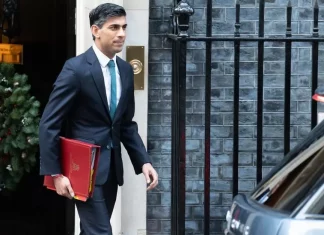A number of Going Postal subscribers have asked me to cover the concept of Bank Bail Ins.
My intention therefore with this essay is to outline the idea for the intelligent layman rather than the economics undergraduate, for whom I would have to over simplify.
What Has Gone Before?
Historically banks went bust. They could not meet their commitments, confidence was lost by customers, there was a ‘run on the bank’. This phenomenon was a regular occurrence in the 19th century, putting money in a bank was acknowledged to be a risk investment. There was a strong implied caveat emptor responsibility on the depositor.
Everyone understood the game. The development of modern economies over many decades in universally enfranchised countries developed a concept of cradle to grave State protection of the individual. Caveat emptor is scorned by the political & bureaucratic class. The compact now between State & citizen is very high tax & regulation but in exchange for a ‘no loser’ society.
This is increasingly popular as the number of State employees or State dependants has exploded in the western world. The status quo has proved unassailable.
The relatively modern concept of the central bank & unbacked fiat currency means the bank bail out has been the State’s weapon of choice for defence of a banking system which is basically permanently insolvent.
This has worked satisfactorily for politicians & bankers (two sides of the same coin) for decades.
If a bank goes broke the State via their central bank, The Fed, BoE, BoJ, ECB (all of which are politically controlled in spite of the veneer of independence) simply indemnify not just depositors, but amazingly bond holders, held by professional investors whom politicians have corruptly ring fenced from their own bad calls. (Ireland is a classic example)
When the doomed banking system collapsed internationally in 2007 these central banks simply turned the spigot & produced digital money out of thin air.
The numbers were so great they were beyond human imagination.
The party continued.
So What’s Different Now?
The salami slicing of bankers’ genuine social & economic responsibility over many years, British Banking Acts, abandonment of Glass Steagall, government deposit insurance & almost total abandonment of criminal prosecutions for institutional embezzlement has lead to a ‘no blame’ culture in the public, corporate & private sector which has proved a catalyst for global debt unprecedented in global history.
One knock on effect is the impossibility of bank deposit guarantees in their current form.
Not only are banks insolvent but so are governments. There is no money. As global debt has quadrupled since 2007 current banking systems are impossible to rescue. The bail out is no longer an option. The QE response of 2007 would simply create monetary inflation on a Weimar Republic scale, only globally. QE caused asset price inflation through the Cantillon effect in 2007.
Inevitable as the digital money flowed into the financial sector. Wall St. if you will.
QE on the scale needed in the next crisis will spill on to Main St.
Real Main St. inflation is currently circa 5% (nobody believes western government’s CPI 2/3%), the coming fiat currency collapse will dwarf that.
How Will Banks & Politicians Screw Citizens Next?
Savers & pensioners have been sacrificed on the altar of fake low or minus interest rates, society is now deliberately constructed for borrowers not savers, who contrary to Keynesian theory are not hoarders but investors.
Who would invest in a bank deposit with interest rates of 1.5% when even fake government inflation figures confirm an annual loss?
The first step to rob the citizen is to punish cash. Several European countries have made cash settlements over modest amounts illegal. There is an anti cash crusade in the western world against cash. Cash & asset confiscation by the government is America’s fastest growing industry .
Why is this?
Not difficult. It makes banking settlements the only option. You have to bank.
You have to tolerate lousy interest rates & crap service, worse with no Glass Steagall style bank structure cash in the bank is high risk. (See footnote)
Why the hostility to cash?
The State claims it is anti cash because of the war on terror or drugs. This is complete nonsense, any self respecting terrorist or drug organisation can run rings around the establishment, money laundering is an art form
The State can find your money in a bank. It’s easy because the State & banks are one & the same.
Cash is difficult to steal if no one can find it.
Why The Bail In?
Well, it would be pretty crazy if the politicians went to so much trouble to get the money into a bank so they can steal it from you, only for you to claim against them for their deposit insurance.
Hence the bail in. There are many forms this can take depending where you live.
There is a big fight back in Australia against the bail in, but as yet most people don’t understand the threat.
Simply put, your bank goes broke officially, (it is already broke) but it comes out into the open, 2007 style. The Cyprus banking crisis is the template here, worth checking out.
The government cannot begin to meet its deposit guarantees on the scale the next crisis will be.
Bear in mind, banks don’t go down in isolation.
The new bail in systems being voted through across the western world now allow the banks to keep depositor’s money & issue equity in the bank. In short worthless bonds or shares, worthless by definition. Dressed up of course to look like you haven’t had your money stolen, that perhaps the shares might be worth something one day. Like the war loan of yesteryear, or exquisite antique Chinese bonds.
But the long & short of it your money has gone.
This will all be quite legal, bear in mind even under current legislation your bank deposit is the property of the bank. Your statement is but an IOU.
As Henry Ford once astutely remarked, ‘if people knew how banks worked they would have nothing to do with them’.
Footnote
In 1848 the UK Supreme Court deemed bank deposits to be the legal property of the bank.
Interest paid was compensation for the investment risk (Foley v. Hill 1848)
Are you receiving interest commensurate with that risk when you know your bank is technically insolvent?
France has banned cash transactions over €1000 Spain €2500 Italy €3000;
Glass-Steagall
In 1933 commercial banks were prohibited from merging with or carrying out investment bank activities. It was repealed in 1999.
It means banks can speculate with depositor’s money quite legally.
Is your interest rate commensurate with this risk?
Originally posted on: Going Postal






